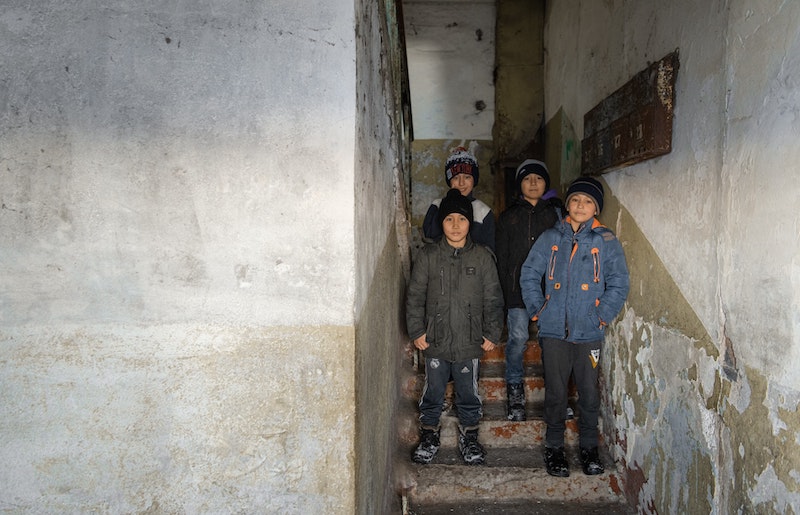Everything You Need to Know About Human Trafficking in Kazakhstan
 According to the 2021 U.S. Department of State Trafficking in Persons Report on Kazakhstan, the country currently has a tier two trafficking rating. However, the government has shown a fair amount of effort in combating domestic and international human trafficking in Kazakhstan, working alongside non-governmental organizations (NGOs).
According to the 2021 U.S. Department of State Trafficking in Persons Report on Kazakhstan, the country currently has a tier two trafficking rating. However, the government has shown a fair amount of effort in combating domestic and international human trafficking in Kazakhstan, working alongside non-governmental organizations (NGOs).
The Initial Abduction
All groups are at risk regardless of gender or age. Forced sex work, labor, coercion into criminal behavior and child adoption are the primary motivators for human trafficking in Kazakhstan, and the strategies these traffickers use are very organized. Strangers, acquaintances, friends, lovers, employers or family can be responsible for luring victims. Traffickers often lure victims in rural areas to large cities with promises of employment, only to deceive them once they reach their destination.
The offer of waitressing, modeling, or nanny work in the city for women and young girls is a ploy many sex traffickers will use before forcing them into commercial sexual exploitation.
Traffickers often coerce vulnerable men and women into labor and export them to countries like Russia and Brazil. Additionally, some adults and children perform criminal activities for their traffickers. At-risk children who do not end up in forced labor or sex work beg on the streets or are “sold” for adoption in other countries.
Amendments to Increase Criminal Penalties
An essential first step to combating human trafficking in Kazakhstan was the rescindment of article 68 of the criminal code which “allowed defendants to pursue settlements by paying monetary compensation to the victim in exchange for having the criminal case withdrawn.” In addition, laws at this time did not see aggravated circumstances such as force, fraud or coercion as significant elements in human trafficking.
With the implementation of six new articles to the penal code that criminalized sex trafficking and labor trafficking, human trafficking offenders now face more severe penalties. Human traffickers can face four to seven years in prison for adult trafficking, five to nine for child trafficking and five to seven years for related crimes. These penalties could increase to 18 years in prison, depending on the aggravated circumstances.
Improved Case Investigations
According to the U.S. Department of State, police in Kazakhstan evaluated 72 cases of human trafficking and continued to investigate 23 open cases in 2020. The government prosecuted 45 investigated cases in 2020, convicting 11 traffickers. There has been a lack of labor trafficking convictions, but the Kazakhstani government held three traffickers responsible for their labor crimes for the first time in three years. Overall, this represents progress in addressing human trafficking compared to 2019 when police investigated 45 human trafficking cases.
The Kazakhstani police have recently examined the organized crime activity of a transnational trafficking organization. Working with the Ministry of Internal Affairs, police forensics were able to link eight individuals who may be responsible for the trafficking of a group of Kazakhstani women to Bahrain. Additionally, police implemented “Stop Trafficking” operations to investigate human trafficking and close down commercial sex businesses and organizations such as brothels or pimps over a few days.
Developed Victim Identification Guidelines and Training
The Kazakhstani government has worked to strengthen their teams with guidelines and victim identification training. The Ministry of Internal Affairs Trafficking in Persons Training Center worked with 168 police officers regarding the investigation approaches to human trafficking cases in 2020. Police officers, judges, prosecutors and labor inspectors received training to identify and effectively persecute labor trafficking cases. Attorneys received training on proper legal protocol when assisting human trafficking victims. Labor inspectors’ responsibilities extended to include mandated reporting of identified victims of human trafficking to law enforcement. The government funded this training, whereas NGOs partially funded previous years’ training programs. The government administered training online due to the coronavirus pandemic.
NGOs’ Contribution
NGOs working to stop human trafficking in Kazakhstan believe the government must address the problem within the system. There are rarely investigations into government officials or police officers suspected of collusion with human traffickers. NGOs reported that traffickers would bribe officials to avoid persecution for their crimes, and some officials would facilitate labor and trafficking organizations.
NGOs play an essential role in the fight against human trafficking in Kazakhstan as they work to increase awareness of the issue. Organizations, such as the Sana Sezim Center, provide shelter, food and transportation for those who have escaped trafficking situations. The Sana Sezim Center has helped 208 victims of human trafficking find legal counsel through its “Safe Migration in Central Asia” program. Another NGO, Zhan Zholdas, offers psychological and medical help and safe sex education. Zabota, the Legal Center of Women’s Initiatives and Megapolise are a few other NGOs fighting human trafficking in Kazakhstan.
Looking Ahead
In July 2022, the Kazakhstani Ministry of Internal Affairs stated that a draft anti-trafficking law would be in development in April 2023. The government revisits and updates anti-trafficking prevention and response procedures every three years in an effort to be more proactive when it comes to tackling human trafficking in Kazakhstan.
– Mikada Green
Photo: Unsplash
